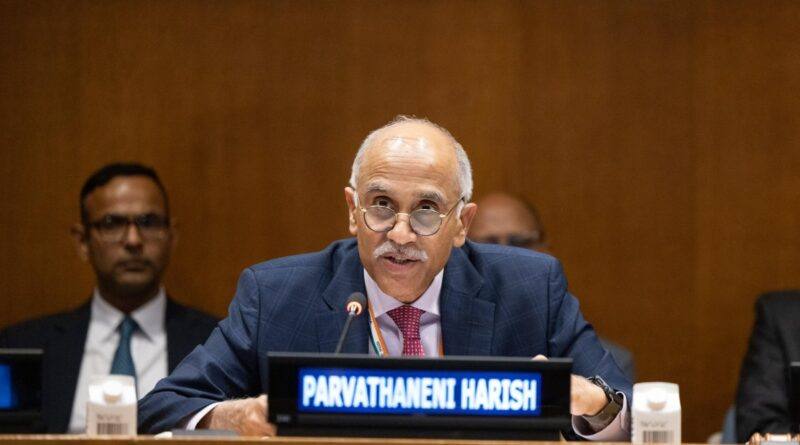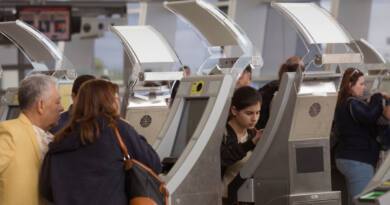Better Act On The Gaza Crisis, Not Just Words: India
WFY Bureau Desk | World Politics | August 2025 Edition
India Calls for Immediate Ceasefire in Gaza, Reaffirms Humanitarian Aid Must Remain Apolitical
As the conflict in Gaza continues to escalate with mounting civilian casualties and shattered infrastructure, India’s diplomatic voice at the United Nations has gained renewed attention. The country’s Permanent Representative to the United Nations, Harish Parvathaneni, recently addressed the global community with a clear and urgent message: the humanitarian catastrophe unfolding in Gaza must be addressed without delay, and a political resolution must be rooted in the long-standing principle of the two-state solution.
India’s statement came during the High-Level International Conference on the Peaceful Settlement of the Question of Palestine and the Implementation of the Two-State Solution, held at the United Nations headquarters in New York. This platform, attended by diplomats, policymakers, and international observers, focused on reviving diplomatic efforts to end the prolonged Israeli-Palestinian conflict.
A Consistent Policy: India’s Position on the Israel-Palestine Conflict
India has historically supported the legitimate aspirations of the Palestinian people for statehood and dignity while maintaining strong diplomatic and economic relations with Israel. This balanced position has allowed India to play a unique bridging role in international discussions.
In his address, Ambassador Parvathaneni underscored India’s consistent position on the Israel-Palestine issue. He called for an immediate and comprehensive ceasefire, alongside sustained and unobstructed humanitarian access to the civilian population in Gaza.
Highlighting the enormous human cost of the current conflict, he pointed out the tragic loss of life, the injury of thousands, and the destruction of essential services including hospitals and schools.
India’s envoy made a pressing appeal for depoliticised humanitarian aid, arguing that saving lives and providing food, fuel, and medical care should not be contingent on political outcomes. He stressed that the international community must treat such assistance as a fundamental necessity and not a tool of leverage.
A Humanitarian Crisis Beyond Imagination
According to data shared by global health and humanitarian agencies, Gaza has witnessed more than 35,000 fatalities since the conflict escalated in late 2023. Among them, a substantial proportion are women and children. Over 70,000 people have sustained injuries, many of which are life-altering.
Critical infrastructure has collapsed. Nearly 50% of medical facilities in Gaza have either been completely destroyed or rendered non-operational due to repeated bombings and blockades. More than 400 schools have shut down, depriving over 300,000 children of basic education for almost two academic years.
Access to clean water, electricity, and internet connectivity has also been disrupted, turning everyday life into a struggle for survival. The United Nations Relief and Works Agency for Palestine Refugees (UNRWA) has termed the humanitarian situation in Gaza as one of the worst the region has faced in recent memory.
In this context, India’s call for unhindered humanitarian assistance becomes a moral imperative, rather than just a diplomatic statement.
Humanitarian Aid: Not a Bargaining Chip
Ambassador Parvathaneni emphasised that humanitarianism must not be held hostage to politics. Aid, including food packets, medical supplies, clean water, and electricity ,must flow freely into Gaza. He reiterated India’s readiness to work with international partners to ensure that aid reaches the civilians who need it most.
India has already dispatched multiple consignments of humanitarian relief to Gaza via partner organisations. These include medical kits, solar-powered lamps, water purification units, and emergency rations, coordinated in collaboration with UN-affiliated agencies.
Two-State Solution: The Only Sustainable Path
In its official position, India reiterated that the only viable long-term solution to the conflict is the creation of two sovereign states, Israel and Palestine, living side-by-side in peace, within secure and mutually agreed borders.
This policy is not new. It is rooted in India’s recognition of Palestine in 1988, support for UN General Assembly Resolution 181, and continued assistance to Palestinian state-building efforts.
The envoy stressed that dialogue and diplomacy must be prioritised over military means. He urged the global community to use their influence not just to broker temporary truces, but to bring about sustained dialogue between the warring parties. The lack of direct engagement between Israeli and Palestinian leaders remains a serious obstacle to peace, he pointed out.
Wider Regional Implications
The prolonged instability in Gaza is not contained within the borders of the conflict zone. Its repercussions are spilling across the Middle East, threatening regional balance, humanitarian security, and international energy trade routes.
Neighbouring countries like Jordan, Egypt, and Lebanon are bearing the burden of rising refugee inflows, economic disruption, and political unrest. The Red Sea shipping lane, crucial to global trade, has witnessed security incidents linked to the conflict. This in turn affects the supply chains of major economies, including India, China, and Europe.
India’s diplomatic initiative, therefore, is not only rooted in its moral compass but also in pragmatic foresight about global security and economic stability.
The Hostage Crisis and Need for Release
Another point strongly emphasised by India’s UN envoy was the urgent release of all hostages. Both Israeli and Palestinian civilian captives, including foreign nationals, must be safely returned through mediated agreements. Hostage-taking, India insisted, undermines the very essence of humanitarian law and must be universally condemned.
According to international monitoring groups, more than 200 civilians are believed to be held hostage since the start of the conflict. Their prolonged captivity fuels anger and makes peace negotiations more difficult, thereby sustaining the cycle of violence.
International Response and Gaps
While multiple countries and regional blocs have issued statements of concern, the global response remains fragmented. The UN Security Council, although convening emergency sessions, has yet to pass a binding resolution calling for a full ceasefire due to vetoes by permanent members.
In contrast, humanitarian funding has seen a sharp decline. The UN’s 2024 Gaza Humanitarian Response Plan, which required $1.2 billion, has received only 40% of the requested funds as of July 2025. Key donor fatigue and geopolitical distractions have contributed to this gap, making India’s proactive advocacy particularly significant.
India’s Practical Contributions
India has not confined its efforts to diplomatic corridors. On the ground, it has extended support through:
- Financial contributions to UNRWA
- Deployment of medical professionals under WHO initiatives
- Donations to the Palestinian Authority for capacity building
- Scholarships for Palestinian students under the Indian Technical and Economic Cooperation (ITEC) Programme
India also continues to send food and medical supplies to Palestine under bilateral humanitarian programmes, reinforcing its long-standing commitment to global South-South cooperation.
Path Forward: Practical and Peace-Centred
The Indian envoy stressed that global conferences must move beyond statements and aim for implementable outcomes. Agreements must be backed by monitorable action, including mechanisms for aid delivery, civilian protection, and humanitarian ceasefires.
India proposed that post-conflict reconstruction in Gaza should be an international priority, where neutral infrastructure partners and financial institutions help rebuild hospitals, power grids, schools, and homes.
India is also expected to play a role in peacekeeping or technical monitoring, if such missions are mandated under a future UN resolution.
Final Thoughts: India’s Ethical and Strategic Voice
India’s call for a ceasefire in Gaza reflects a blend of ethics, diplomacy, and pragmatism. At a time when the world is sharply divided on the Israel-Palestine issue, India’s measured and humane approach has positioned it as a voice of balance and responsibility.
The country’s focus on human dignity, equal sovereignty, and rule-based order resonates with its vision of a more equitable global order, one where the right to life and peace is not decided by military strength but upheld by international consensus and law.
As the humanitarian crisis continues, it is vital for more nations to echo India’s plea: ceasefire now, relief without politics, and sustained efforts towards a two-state peace.
Disclaimer:This article is intended for informational and editorial purposes. It reflects independent journalistic interpretation and does not quote or replicate any official source directly. All data has been adapted from publicly available sources as of August 2025. Any resemblance to direct statements is unintentional and rewritten to maintain originality and compliance with editorial policy.




